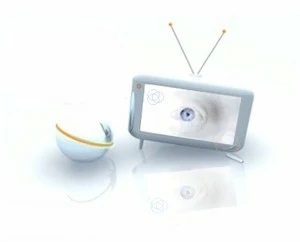|

tom
hohstadt
author,
futurist and all great guy www.futurechurch.net
1.
we ask this of everyone: how do you define postmodern culture?
Postmodernism
is simply a rejection of the modern period . . . a refusal of
old ways of thinking . . . a loss of confidence in the proof of
truth. Postmodernism
is a negative—though, perhaps, necessary—“death of
civilization.” So
I prefer to celebrate the positive future that now replaces the
“deconstruction” of postmodernism.
You may call it POST-postmodernism, if you want.
2.
how do you define and practice evangelism in a postmodern
culture?
The
evangelism of the POST-postmodern future will be more:
-
organic (part of life itself) and less institutional or
programmed,
-
personal and less doctrinal,
-
grace-filled and less sin-dominated,
-
a triumph of the Spirit and less a triumph of man,
-
motivated by joy and less by fear,
-
a community dynamic and less individualistic,
-
motivated by the heart and less by propositions or formulas,
-
validated by experience and less by knowledge,
-
open to multiple points of entry and less restricted to certain
times and places,
-
helpful to multiple stages of growth and less a one-time event,
-
art and less rhetoric,
-
listening and less talking,
-
modeling and less teaching,
-
cross-cultural and less cultural.
3.
as a futurist, where do you see the church in 50 years?
A
time traveler would not recognize the Church 50 years from now
as the “church.” First,
we will see reality in a different way . . . we will prove
“truth” in a different way.
We will simply think differently.
Science, technology, creativity, and spiritual experience
will become so blended that they will appear as one.
For example, faith, meditation, prophecy, quantum theory,
chaos theory, creativity, art, and virtual reality will become
virtual synonyms.
In
the same way, language will also change.
Metaphor, multiple, and mosaic thinking will replace the
linear logic of today. Within
this new language, communion with God will prove miraculously
profound, involving the intuitive senses and feelings far more
than the reasoning intellect.
For these reasons, something similar to the “Gifts of
the Spirit” will pervade worship and every worshiper will
participate.
Though
the Church will remain “in the world, but not of the world,”
the line between secular and sacred will blur.
For worship will happen anytime, anyplace, anywhere, and
with anybody. It
will also be global and trans-cultural.
4.
language is key to human communication, what do you see as three
main blocks between a modern and postmodern culture?
Those
who have both feet in the modern world find it almost impossible
to communicate with postmodernists.
Just consider:
-
Postmodernists have destroyed Universal Truth, the most precious
possession of the modern world.
-
Postmodernists have destroyed the validity of modern language .
. . the objectivity of its science and logic.
-
Postmodernists have destroyed the vision of the modern world and
have offered little hope for a new vision.
For
these reasons, we must look beyond the “deconstruction” of
postmodernism to the new and hopeful POST-postmodernism that is
now coming into being. If
we look closely, we will discover that the new world is not
totally postmodern. And
it never will be.
5.
what do you see as the three main qualities of a postmodern
leader?
In
the POST-postmodern world, a spiritual leader will be:
-
A mentor and less a manipulator
-
A servant and less the one being served
-
A poet and a prophet and less a CEO
6.
what do you see as the future of tech and its role in the
church?
The
church must get past its naive adolescence with technology.
Technology in today’s church reminds me of the early
days of the movie industry.
We will recognize a mature art form (or worship form)
when technology is not merely “added on” but intrinsic and
prophetic. In the
meantime, let us remember that “turning a knob” or
“pushing a button” does not automatically manifest God’s
presence.
7.
given all your vast knowledge and experience, what two things
would you like to pass on to this generation?
Please
don’t make the same mistake the Boomers made.
They turned their culture into a self-image religion.
Every moment in every event should risk the power of
prophetic metaphor. But
this has nothing to do with doing new things or doing old
things. It has
everything to do with participating in a live or dead metaphor.
After all, something new can become an overnight cliché
just as easily as something old.
Finally,
see yourselves as guides into the future.
Take an old person by the hand and walk them gently and
faithfully into this new world.
They need you, and you need them.
any
closing thoughts?
For
more information on these subjects please visit:
www.futurechurch.net/
Many
blessings!
|

